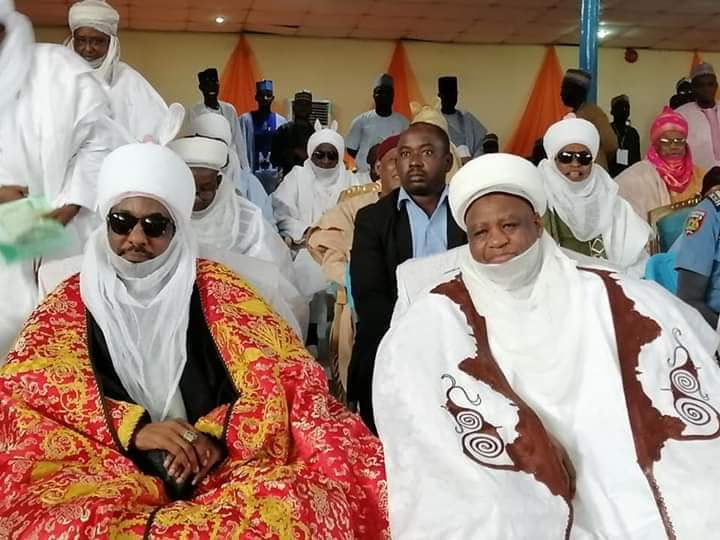In this exclusive interview held in Lagos, Southwest, Nigeria, the Founder and Chief Executive Officer (CEO), Islam Channel, a UK based English language Islamic-focused satellite television channel, Muhammed Ali Harrath spoke with Muslim News Publisher, Rasheed Abubakar on Islamophobia and the affairs of the oppressed Muslim Community globally. Excerpts…
MN: You spoke about Islamophobia during your keynote address. Can you please, shed more light?
First of all, thank you for the opportunity. It is my pleasure speaking with you and your readers. Islamophobia is a phenomenon that is quite old and of course, it has a modern version; something new about the term so to say. It is the irrational fear of Islam. People perceive something, call it Islam but that’s not the real Islam. We have to work hard to clarify to the public that what they are perceiving as Islam is not Islam. What they’re attributing to Muslims has nothing to do with Islam and Muslims, even if the perpetrator calls himself a Muslim.
MN: Some Westerners believe that Islamophobia is a misleading term used by Muslims to run away from the criticism of Islam. What is your take on this?
I think they use this stereotype because they want to establish as a matter of fact that certain races, I mean the black race is inferior to the rest of humanity. They want to establish it as a fact when people talk about racism. They say, ‘the people want to shy away from genetics, fact and science, which is complete contradiction’. And then, on anti-Semitism, they said, the Jews are inherently evil. The Jews fought back and in the process came up with anti-semitism which has been accepted. So, this is not new.
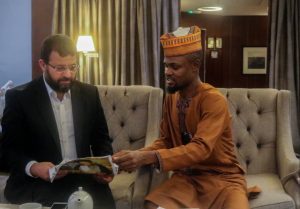
They are trying the same with Islamophobia. I think they are failing because the world is accepting that there is indeed Islamophobia. For instance, in the UK, there is a distinct crime called Islamophobia. When someone is subjected to a crime, the police record it down as Islamophobic crime. Clearly, there are people that are being attacked for no reason whatsoever other than appearance as Muslims. They break into mosques to attack Muslims or go into Muslim graveyards discreting it because they are Muslims. Thus there is no criticism about it.
MN: Talking about Muslim hot spots globally. Why do you think Muslims are the most oppressed in the world today?
I think it’s because Muslims are disunited. They have lost their power. So, they are subjected to attacks and civil wars. This is not new. Europeans themselves experienced civil wars. World War I and World War II took place in Europe, and the main victims were Europeans. Also, before that, we had colonialism where Europeans colonised other continents.
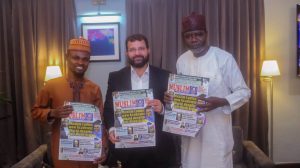
Almost all countries in Africa were colonised by the Europeans. So, that is how it goes. In the past, Muslims used to keep quiet. Now they are rising, speaking out against oppression, and because they are speaking out, there is repression. We hope, in shaa Allah, things will change in the nearest future.
MN: You said in the nearest future, how soon is that time?
Well, if you remember, we once had a war in Bosnia & Herzegovina where they planned to eliminate all Muslims and root out the existence of Islam in Europe but they failed.
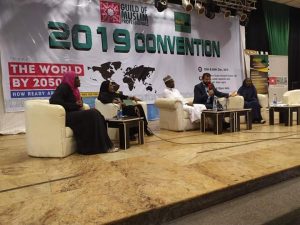
Alhamdulillah today, Bosnia & Herzegovina is thriving. They even tried it in Eastern Europe and Central Asia and so many places but the problem is sorted now. Evidently, we still have the challenge especially in the Middle East, part of the Arab world, part of Africa and I believe it will soon come to an end.
MN: Challenges facing media organisations is finance and like you said in your keynote address, money is needed to run a successful media outfit. How can this be solved?
I think, Muslims don’t lack the funds. Muslims have money. In fact we do have a lot of money but the challenge is consciousness. Muslims do not attribute a lot of importance to media. I think we have to start educating fellow Muslims. We have to make them realize how important the media is, and make them invest in it. We don’t look for donations but investment and it’s important for Muslims to invest. We want the Muslim elite to come out with media ideas that are also commercially viable.
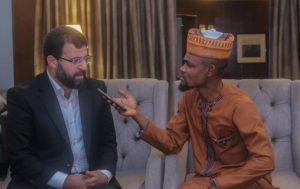
We have to have that balance – commercially viable media including business plans. At the same time, we need Muslim millionaires, businessmen to invest in Muslim media.
MN: How can we juxtapose using media as a tool for religion and a tool for business?
Islam is a way of life. As Muslims, we don’t make a difference to prayer and work. All of them are acts of worship to God. When you go about your daily life, work and serve humanity, that’s an act of worship as well. So, we don’t make a difference. As such, media serves every purpose both business and religion.
MN: How has Islam Channel been faring considering the UK ecosystem?
Well, AlhamduLiLah, the United Kingdom has one of the best and progressive laws. We do not deny that there are Islamophobes. We do not deny that there are sections of the media, sections of the society, sections of politics, who are anti-Muslims no matter how good you are.
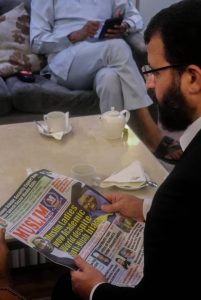
However, we still have the English law which is against Islamophobia, racism, anti-Semitism. And that’s something good we have to enjoy and cherish. So, Islam Channel is thriving. We are doing extremely well in the UK.
MN: What are those things that worked for you that we can also adopt in the running of the media here in Nigeria?
I think here comes the part of networking. Muslim professionals, Muslim businesses, Muslim media activists and people working in the media worldwide, I think we have to create the network so we can benefit from each other, exchange ideas, exchange experiences. That’s quite important.
MN: What is the future of Islam Channel in global outreach especially in Nigeria?
In shaa Allah, next year, that’s our plan. Our plan is to open an office/studio in Nigeria; to have production from Nigeria. In shaa Allah, we are going to have it next year. That’s the plan.


